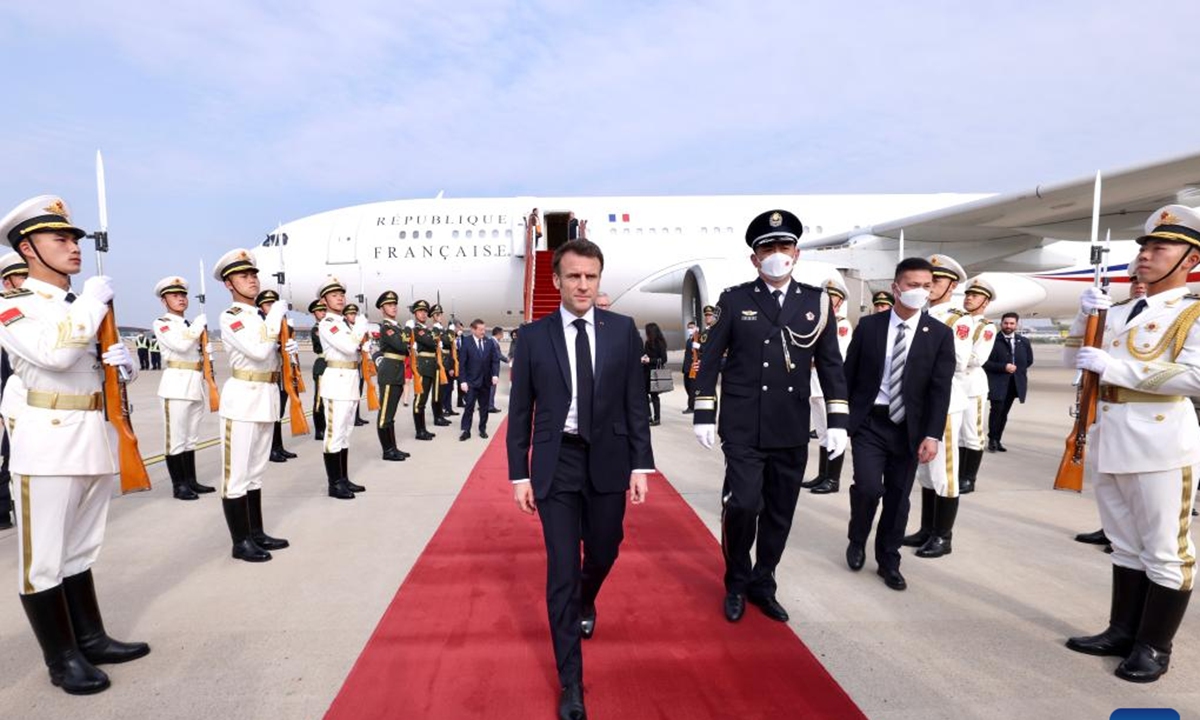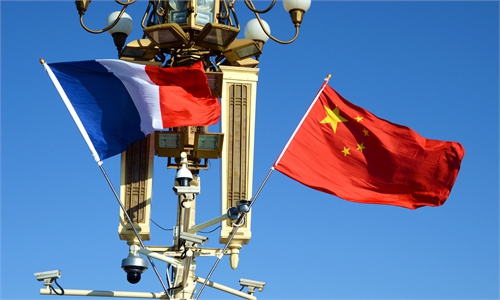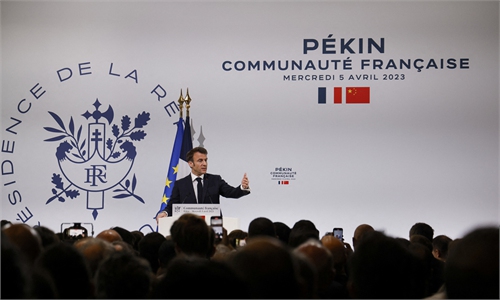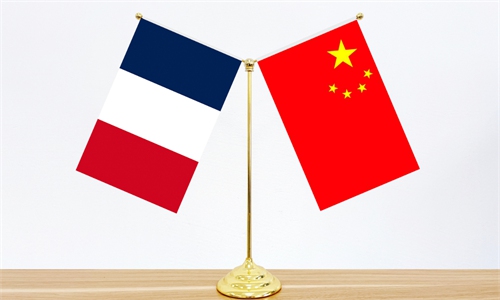Macron's China visit embodies the value of strategic autonomy: Global Times editorial

French President Emmanuel Macron arrives at Beijing Capital International Airport in Beijing, capital of China, April 5, 2023.Photo:Xinhua
French President Emmanuel Macron arrived in Beijing on Wednesday afternoon, kicking off his state visit to China. Macron is accompanied by a delegation of over 60 CEOs including from Airbus, Alstom and Electricite de France. European Commission President Ursula von der Leyen also arrived in Beijing later in the day. Macron's visit is expected to produce concrete results in furthering economic and trade cooperation between China and France, as well as to increase political mutual trust.In the context of rising internal and external interference and a growingly complex and tense international environment, it is more necessary for China and France, two major countries in the Eurasian continent, to strengthen strategic communication and coordination, form consensus on major international issues, and play a leading role in international relations. It is worth noting that various forces in Europe and the US are paying close attention to Macron's visit and exerting influence in different directions. In other words, not everyone wants to see Macron's visit to China go smoothly and successfully.
Among Western powers, France has relatively more common ground with China. China's and France's views on supporting multilateralism, free trade, and global governance are consistent, which has helped maintain a stable development momentum in bilateral relations since the establishment of diplomatic relations. Seeking common ground while shelving differences as well as pursuing mutually beneficial cooperation are the main theme of China-France exchanges. This not only brings sustained benefits to the peoples of both countries, but also provides a positive example and valuable experience for other Western countries on how to get along with China. Today, when global division and even confrontation are looming, the value of China-France friendship is even greater. In a sense, this is also a responsibility to the world.
The Chinese people have always appreciated the strategic autonomy and independent diplomatic spirit demonstrated by France in the changing international landscape. Back then, former French President Charles de Gaulle adhered to pursuing an independent foreign policy to safeguard France's national sovereignty and independence. Today, we can also see this in President Macron. However, objectively speaking, it has become more difficult for European countries to implement "independence" and "autonomy." This time, Macron is encountering more pressure, criticism, and question in the European and American public opinion field than during previous visits. His efforts to rebuild France and Europe as a "third way" between the US and China have been criticized by some as "compromising" with China.
For example, some media outlet questioned the Palace of Versailles: Why does France always want to appear different from the US? Some media intentionally praised Von der Leyen while criticizing Macron, claiming that the former, who delivered a "tough" speech on China before her trip, is "braver" than Macron, who "almost seems to be naïve." The claim of Europe being naive about China has thus taken on a new version. A more complex and negative public opinion environment toward China is testing the strategic determination and political wisdom of European leaders. However, who is really "naive" is actually self-evident.
Behind the public opinion lies a confusing and outdated perception of China that is severely out of touch with the times. Some Westerners cannot let go of the superiority complex derived from modern history, but have a sense of loss and lack confidence brought about by the new era. Therefore, they are eager to show a tough stance when facing China, afraid of being considered as "weak." However, this deliberate "tough stance" exposes the core of a mentality of the weak. Some European media are clamoring to "harshly criticize" or "warn" China on the Ukraine issue, which failed to put themselves in the right position. True political courage should be reflected in not catering to but overcoming such irrational social sentiments. After all, there are no fundamental contradictions and differences between China and France as well as between China and Europe. Cooperation between the two sides is far greater than competition, and consensus is far greater than differences.
President Macron's last visit to China was in 2019 when he attended the China International Import Expo in Shanghai and personally promoted French products. In 2018, he also made a state visit to China. During both visits, Macron focused mainly on promoting practical cooperation between China and France. We believe that the three-day trip this time, his third visit to China, will be just as enjoyable, productive, fruitful and meaningful as the previous two. The effectiveness of French diplomacy will depend on its ability to find a new path of equality, friendly and mutually beneficial coexistence with the non-Western world, including China. It is clear to everyone that being a strategic vassal of Washington is a dead end. Making the China-France relationship a bridge for China-Europe cooperation is beneficial to both sides and to the world.



